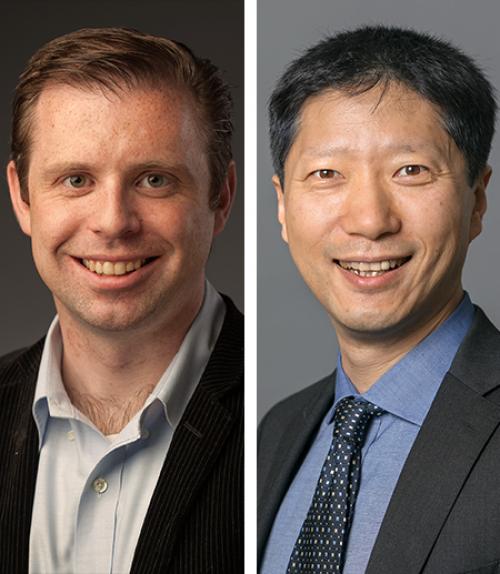The inaugural Provost Research Innovation Awards recognize midcareer faculty from engineering, the humanities, life sciences, social sciences and physical sciences.
“The list of candidates for these inaugural awards was extremely impressive, which made the task of selecting the first winners a real challenge,” said Emmanuel Giannelis, vice provost for research and vice president for technology transfer, intellectual property and research policy.
“Groundbreaking, impactful, collaborative research is Cornell’s trademark,” said Giannelis, the Walter R. Read Professor of Engineering, “and recognizing leaders in this area is important as we expand our research efforts in the future.”
Criteria for award consideration include: leadership in a field; publications in high-impact journals; published books; external funding/awards; entrepreneurial activities; corporate research partnerships; mentoring of future researchers; and NGO and public/private partnerships.
This year’s winners are:
- Aleksandr Mergold ’00, assistant professor in the Department of Architecture, for research in forging relationships between local agrarian and cultural traditions and a modern, global sensibility. Mergold was named a Faculty Fellow in Engaged Learning in 2015; his work has been published in The New York Times, Domus, Architectural Record and the Cornell Journal of Architecture.
- Natalie Mahowald, the Irving Porter Church Professor in Engineering, Department of Earth and Atmospheric Sciences, for research on the effects of aerosols and dust on global climate. Mahowald’s research group probes how humans are perturbing the natural environment, especially through biogeochemical feedback.
- Ailong Ke, professor of molecular biology and genetics, for research on structural aspects of RNA function. Ke’s research focuses on CRISPR interference, an RNA-guided defense mechanism in bacteria and prokaryotic microorganisms. Ke’s work has been published in Nature, Science and Cell.
- Alex Hayes, associate professor of astronomy, for pioneering several novel techniques to probe the lakes and seas of Titan, the largest moon of Saturn. Hayes and his group specialize in the geological and physical processes that shape planetary surfaces and atmospheres, including the identification and characterization of potentially habitable environments across the solar system.
- Vanessa Bohns, associate professor of organizational behavior, for research relating to social influence, compliance and consent. Bohns, a social psychologist by training, examines the extent to which people recognize the influence they have over others in various interpersonal interactions, including when asking for help, encouraging one’s peers to engage in questionable behaviors, and making romantic advances.
Every department can nominate one faculty member for the award, which carries a cash prize of $5,000.
This story also appeared in the Cornell Chronicle.




